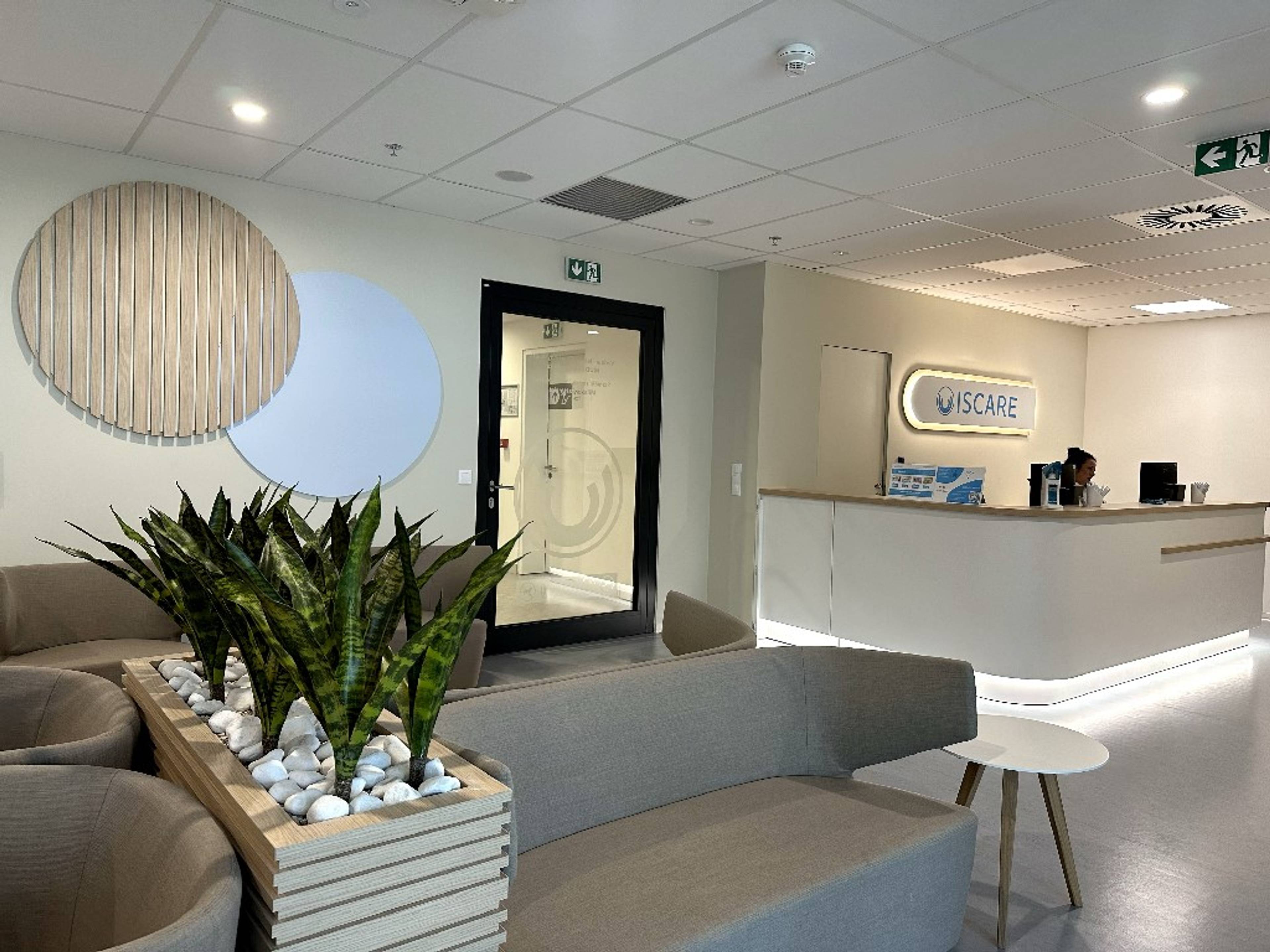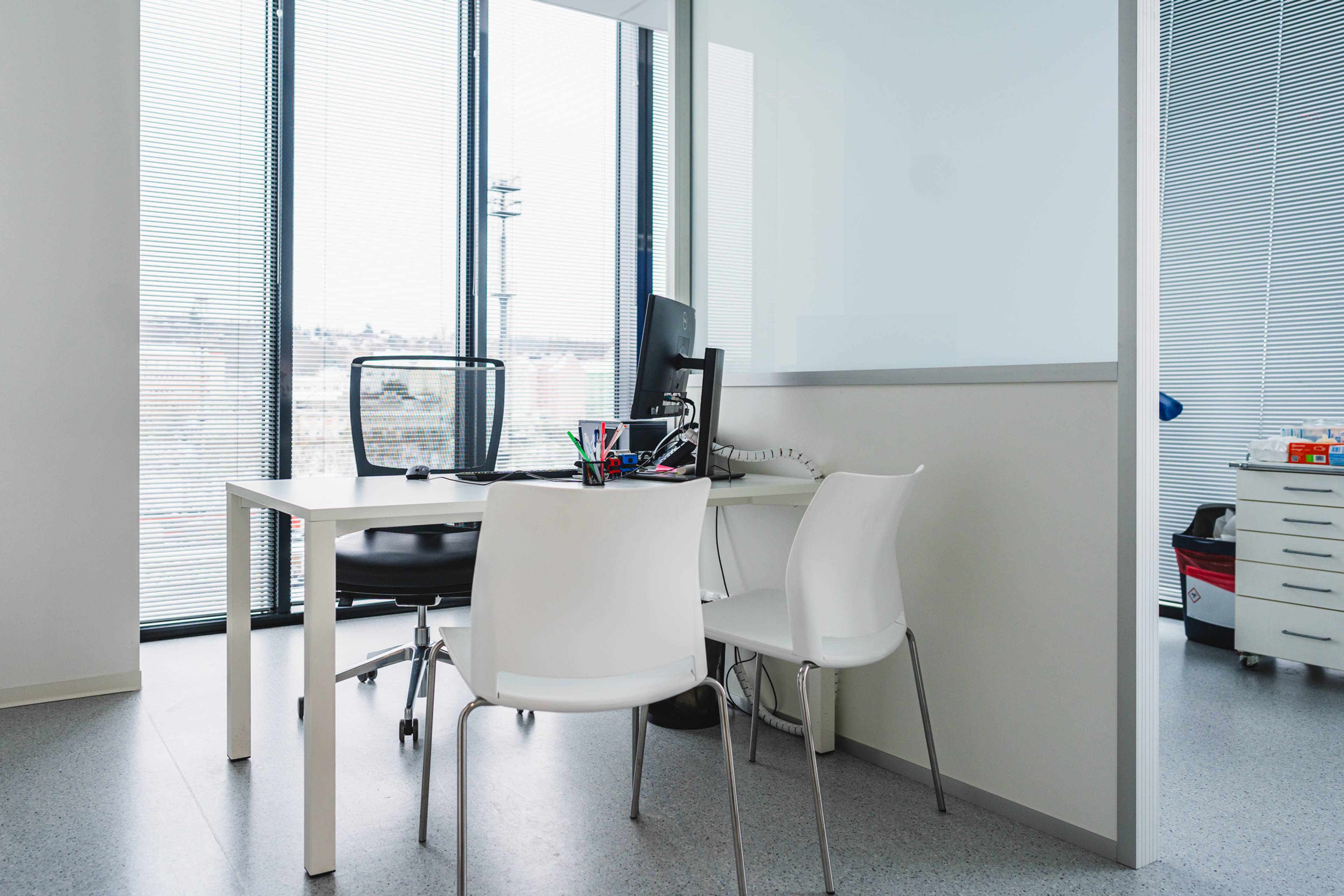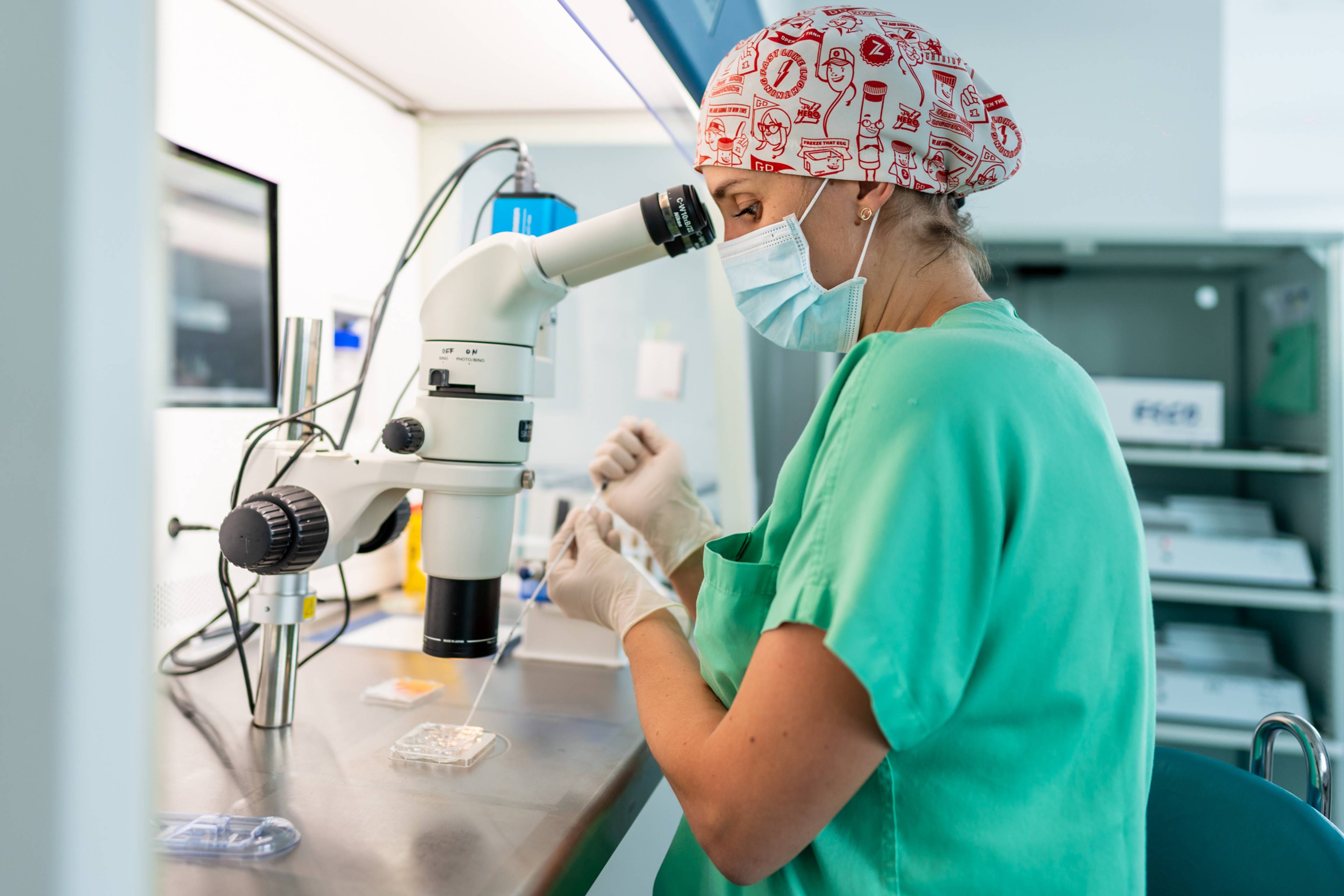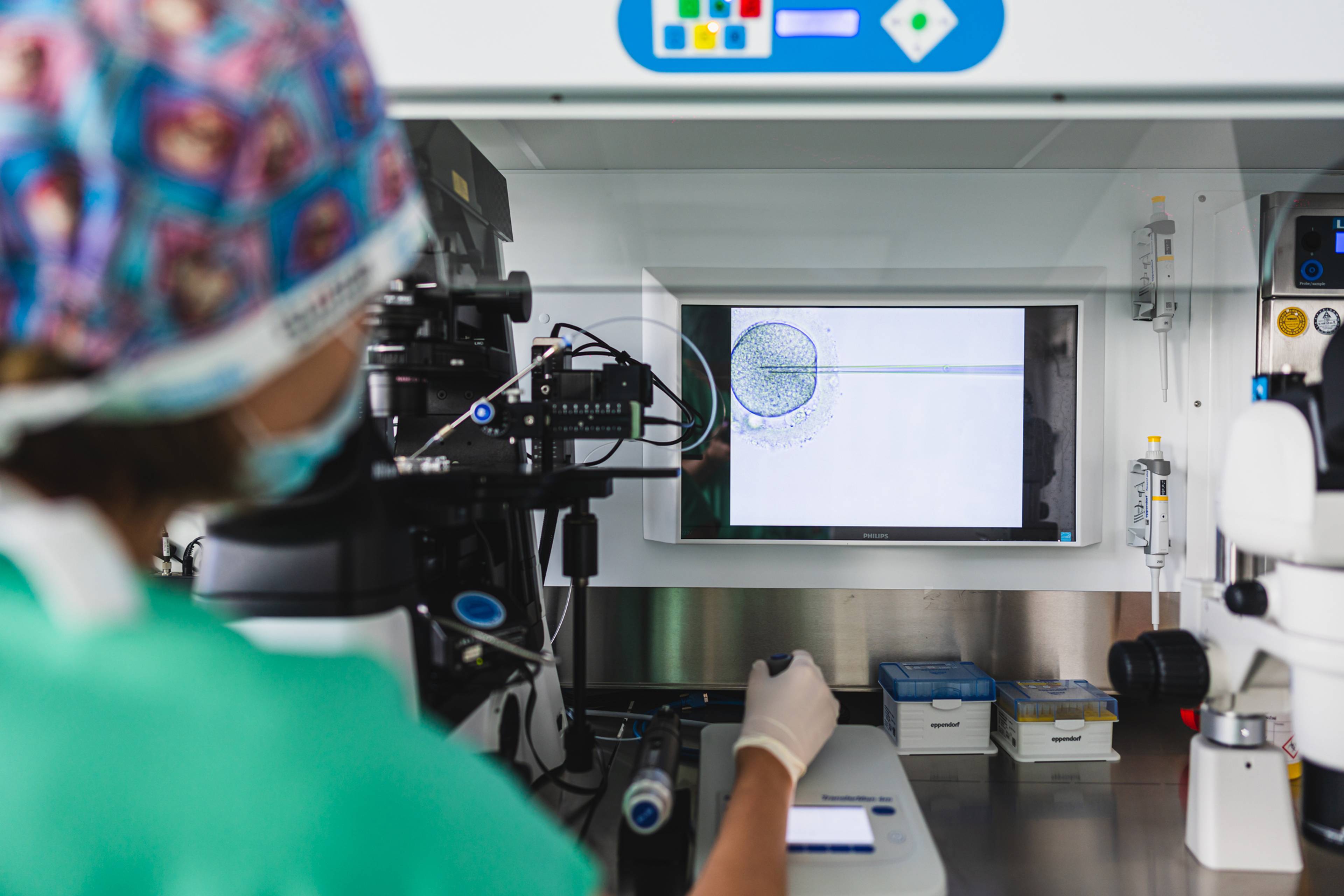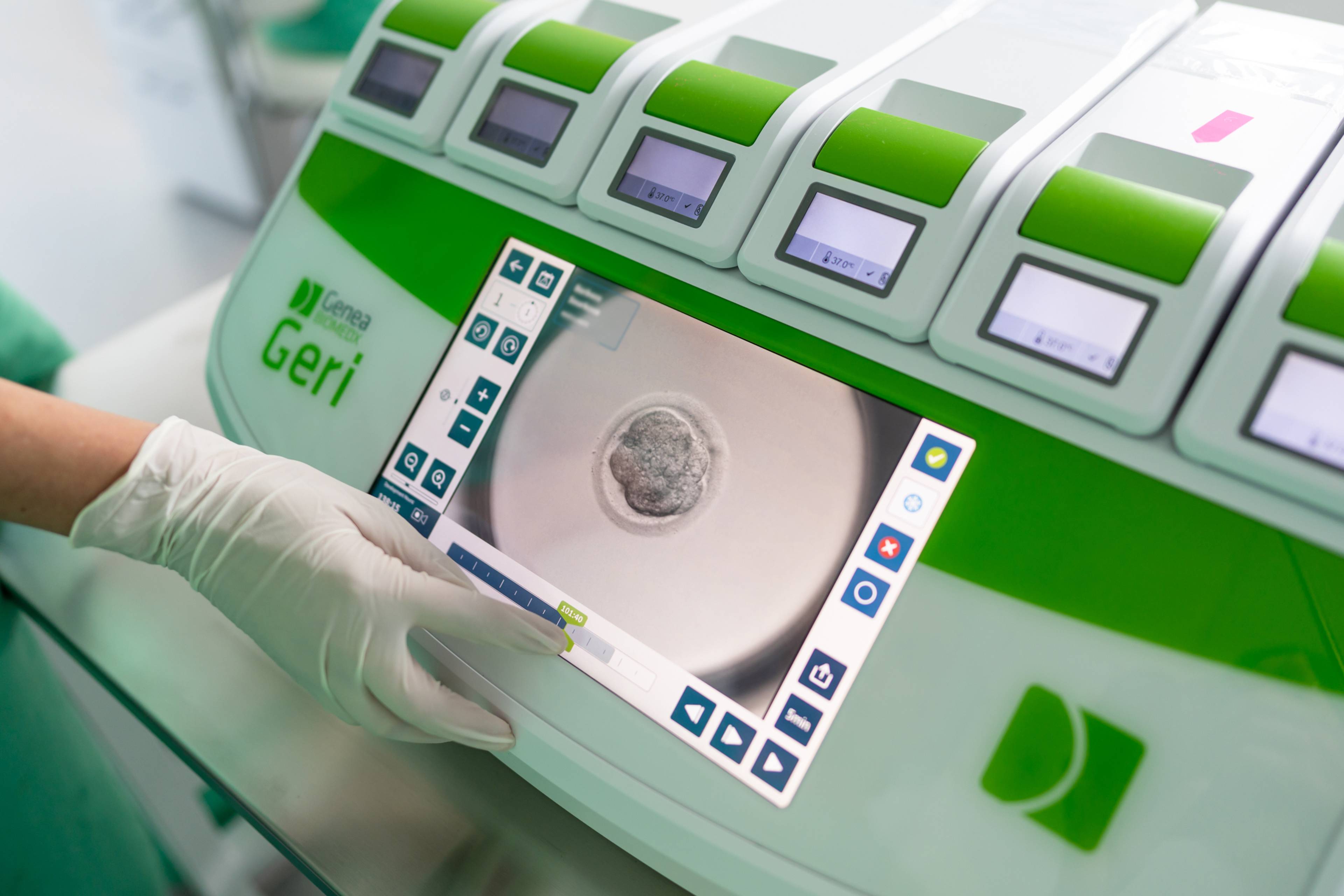How to book an apointment and other useful information
How to order
- By phone at +420 727 984 544 between 8am - 4:30pm (Mon - Fri)
- In person at the reception desk on the 7th floor between 7am - 4pm (Mon - Fri)
- By email jiricek@iscare.cz
- Via the web contact form on this page.
Opening hours
- IVF doctors' surgeries vary, standard working days 8am - 4pm (Mon - Fri)
- Nurses's station is open weekdays 8am - 4pm (Mon - Fri)
- Reception is open weekdays 7am. - 4:00pm. (Mon - Fri), Saturdays 7am - 11am.
- Lab IVF, weekdays 8am - 3pm. (Mon - Fri)
- We are open on Saturdays and public holidays for scheduled stimulation patients only, 7am - 11am.
- We are closed on Sundays.
What to bring
- ID (ID card, passport or residence permit)
- A doctor's note, if your doctor has issued one
- Results of the following tests, if you have had any of them recently
- A statement from your medical records, if you are transferring from another Reproductive Medicine Center
- Medical reports from gynaecological procedures you have undergone
Next procedure
According to the doctor's indication, the following examinations may be carried out before the actual treatment:
- Spermiogram of the partner (if not performed at the first visit)
- Andrological examination of the partner (in case of a bad spermiogram result)
- Hormonal profile (blood tests)
- Gynaecological ultrasound examination
- Genetic testing of the couple (consultation with the doctor and blood tests)
- Basic immunological examination (blood draws)
- STD testing (Sexually Transmitted Diseases)
- AMH examination (blood tests)
- HyCoSy (ultrasound examination of fallopian tube patency)
FAQ about IVF
What is IVF?
- It’s an external technique used to help people with fertility issues have a baby
- Treatment involves your eggs being fertilised outside of your body, then embryos are implanted into the uterus
- Most people look into it after one year of trying to get pregnant with no success
- Can also be used to help prevent passing on genetic issues to a child
- One of the most common methods of artificial insemination
In vitro fertilisation is a complex assisted reproductive treatment. It involves joining an egg with sperm in the laboratory – in vitro – in order to obtain good-quality embryos, which once transferred to the mother’s uterus can lead to a pregnancy.
To perform the procedure, it is necessary for the patient to undergo controlled hormonal stimulation to procure her eggs, which will later be fertilised in vitro in the laboratory and monitored for a few days whilst they develop. One of these embryos will then be transferred back to the womb and the rest will be frozen for future use.
IVF process and how IVF works?
How the IVF process works at our clinic:
- The process of IVF is in accordance with the treatment plan, which is determined by the doctor will begin with hormonal stimulation of the woman.
- Hormone stimulation is necessary to obtain a larger number of eggs, which are not normally released during a woman's regular ovulation cycle.
- The doctor verifies the progress of stimulation by ultrasound examination.
- The mature eggs are then retrieved under short-term general anaesthesia by puncturing the follicles.
- On the day of the egg retrieval, the partner undergoes semen collection.
- The eggs are then fertilised with sperm and the resulting embryos are cultured in an incubator.
- After a few days, the best embryo is transferred to the uterus of the future mother in a process called embryo transfer.
- The other embryos can be cryopreserved for further treatment.
How to start with IVF (In Vitro Fertilization)?
Fill in the contact form on this website. We will contact you back and book an apointment with our English speaking coordinator or also with a doctor (online consultation) it is free of charge. You and your partner come in for a consultation with the doctor in person afterwards. Together we will determine a plan and course of treatment. We will make your dream of a complete family come true. We will guide you through the entire IVF treatment process from the first consultation to your pregnancy.
Who is IVF suitable for?
- Couples who can’t conceive and are unsure why
- Women with a diagnosed fallopian tube obstruction or endometriosis
- Women who have problems with oocyte release (issues with ovulation) and who have not conceived yet using antiestrogens
- Couples with a male sterility factor
- When a specialist geneticist recommends genetic testing of couple’s embryos, eg. in case of higher probability of transmitting serious hereditary diseases
What happens before starting IVF treatment?
We need to know which treatment suits you best, so we will make a personalised diagnosis for you. When testing both men and women before IVF, we need to distinguish between local and foreign patients – including which tests are required or which tests patients can undergo according to their diagnosis.
Women
- Ovarian reserve testing. Supporting copy example: We do this to predict how your ovaries will respond to fertility medication
- Practice embryo transfer/dummy embryo transfer
- Uterine exam
Men
- Semen analysis
For both partners
- Infectious disease screening, such as HIV.
How can I prepare my body for IVF?
- Healthy lifestyle
- Healthy weight
- Give up smoking/vaping and cut down on alcohol
- Reduce caffeine
- Reduce stress
- Take supplements
Is IVF treatment painful?
IVF involves several steps, and the level of discomfort or pain can vary from person to person. Here's a general overview of potential sources of discomfort or pain during different stages of IVF:
- Ovulation Induction: Hormonal medications used to stimulate egg production can sometimes cause mild side effects, such as bloating, mood swings, and breast tenderness.
- Egg Retrieval: Typically performed under sedation or anaesthesia, so the patient should not experience pain during the procedure itself. After the procedure, some women may experience mild cramping, bloating, or discomfort, but this usually resolves within a few days.
- Embryo Transfer: The embryo transfer is a relatively quick and straightforward procedure, and generally not associated with significant pain. Some women may experience mild discomfort or cramping during or after the transfer.
- Luteal Phase Support: Hormonal medications, such as progesterone, are commonly used to support the uterine lining during the luteal phase. While some women may find the injections mildly uncomfortable, others may not experience significant discomfort.
How to find donors for IVF?
At the ISCARE clinic, in the Czech Republic, donor anonymity is guaranteed. We have our own oocytes and sperm bank, so there's no waiting time to find a donor. In case of the egg donations, where fertilisation happens immediately, in sperm donation we use carefully screened frozen sperm. All our donors undergo thorough consultations and series of the examinations before being approved, to make sure they always meet Czech legislation and medical standards.
All donors are high school graduates aged (female 20-34) and (male 18-39), chosen to match recipients' criteria like blood type, hair colour, eye colour, height, weight, and skin type to match those of the recipients. Patient satisfaction is our priority, and we consider their preferences when selecting donors, always aiming for healthy baby births.
How much IVF costs?
After initial consultation and examination, the doctor will recommend procedures that may increase the success rate of treatment in your specific case. Your coordinator will provide you with a complete price list of methods. If you combine multiple of them, your coordinator will offer you appropriate discounted packages. Please, find out details in our price list.
Take a look
How it looks like at
Assisted Reproduction
